Pictures of Food for Thought
A couple of weeks ago I facilitated an origami workshop here at the library. I say “facilitated” because normally I “teach” a workshop, meaning I impart my knowledge and experience of a skill or activity that I am familiar with to others, but as I know very little about origami and even less about how to actually fold paper into tiny sculptures, I think “facilitate” is a more appropriate word. It was school vacation week so I wanted an activity that patrons of all ages could just pop into without needing to be there for a whole hour in order to complete the project. So, in this case “facilitate” means I collected the library’s books on origami from the art and children’s areas and got packages of very beautiful squares of colored paper and laid it all out on the table, and waited. Let me just say I was very uncomfortable with this situation.
“What if someone needs help and I (gasp!) can’t help? What will happen??”
Well, as it turns out, people did need help because (guess what?) origami is hard. And I’ll tell you what happened: we had so much fun figuring out how to fold paper into tiny sculptures! We laughed at ourselves for not being able to understand instructions that were written for children. We laughed at the mangled legs on our first attempt at a jumping frog and we laughed when, no matter how many different ways we tried it, that frog could jump but would only land upside down with its poor little mismatched feet in the air. And when we got really good at making jumping frogs, we laughed at how much fun a group of grown-ups could have making jumping frogs and holding jumping contests. We did not get good at making anything else. We will probably never do origami again. (Ever. It’s, like, seriously hard.) But we had a great time. And when we were putting our supplies away I was so excited about the whole thing I blurted out, “I’m gonna write about this in The Blog!”

I told you it was hard.
So I went to the computer and sat there staring at the screen and wondered what I was supposed to say about a workshop that wasn’t really a workshop because we didn’t really do much and we certainly didn’t accomplish anything, unless of course you count giggling. But then I realized I do count giggling! This got me thinking about adults and play and how rarely we allow ourselves to do it. So I googled it. And it seemed like all the legit articles on the subject were quoting a Dr. Stuart Brown, so I googled him and it turns out he wrote a book called (guess what?) Play. So I looked up Play and, wouldn’t you know, it was in the stacks of your very own Medfield Public Library!
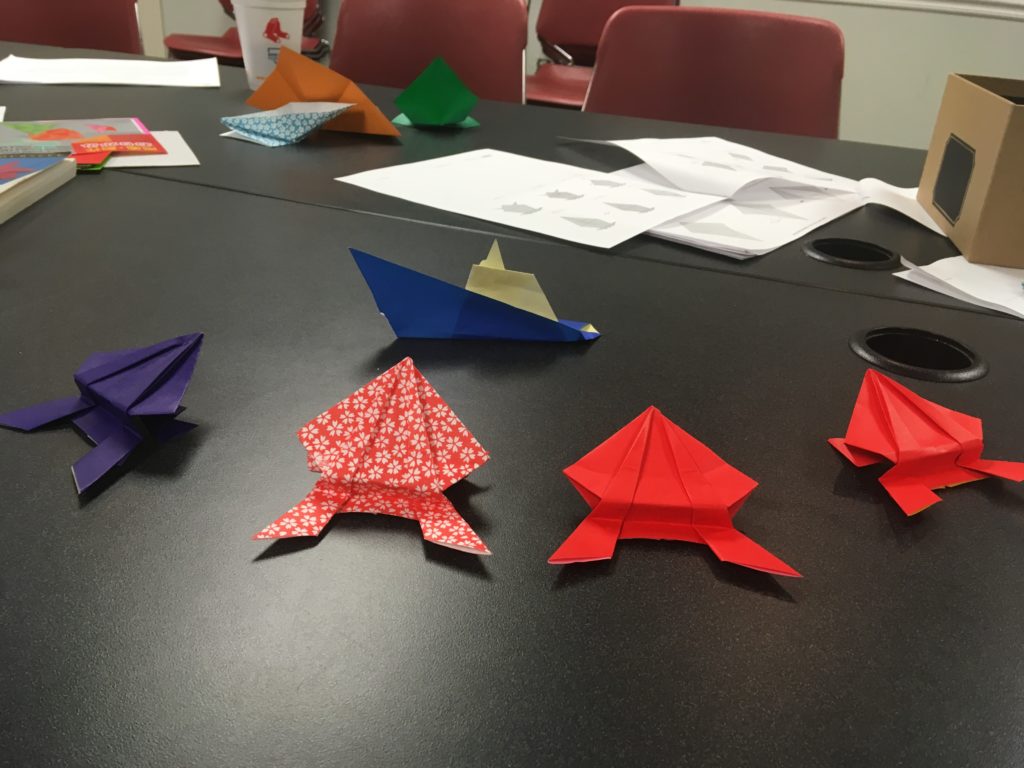
One jumping frog is cute. Four are just plain menacing!
Dr. Brown says, “The ability to play is critical not only to being happy, but also to sustaining social relationships and being a creative, innovative person. If that seems to be a big claim, consider what the world would be like without play. It’s not just an absence of games or sports. Life without play is a life without books, without movies, art, music, jokes, dramatic stories. Imagine a world with no flirting, no day-dreaming, no comedy, no irony. Such a world would be a pretty grim place to live. In a broad sense, play is what lifts people out of the mundane. I sometimes compare play to oxygen—it’s all around us, yet goes mostly unnoticed or unappreciated until it is missing.”
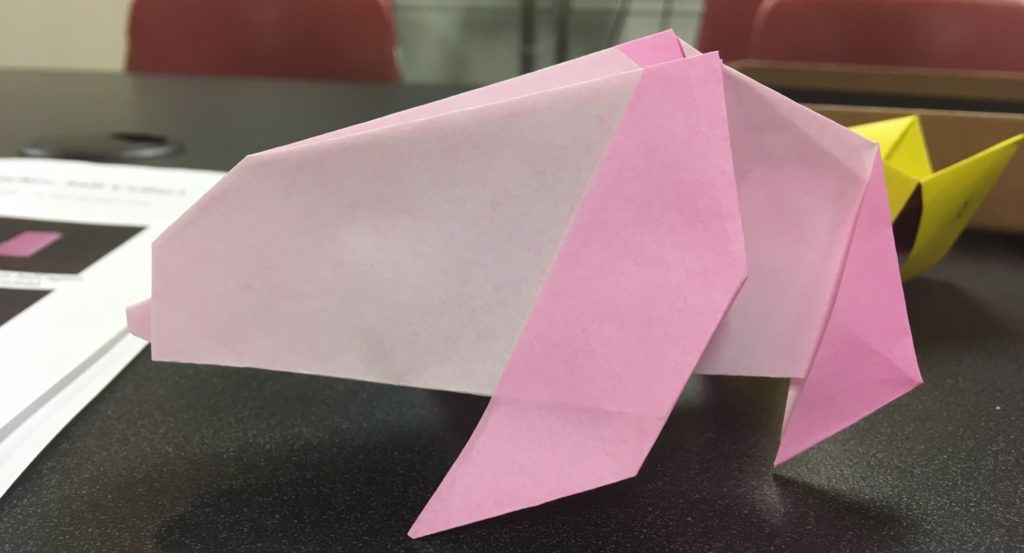
The Elusive Wild Pink Panda
If you’re feeling like you could use a little lift out of the mundane, I highly recommend you check out this book. (But not for another week–It’s still mine for another week!) It will help you figure out your own “play personality” so you can choose beneficial activities for yourself (because while kids are good at figuring out how to play, adults not so much.) Dr. Brown will also tell you what play actually is in case you’re such a fuddy-duddy you’ve forgotten. If you can’t wait for me to turn the book back in, here is a list of the “Properties of Play” to get you started. I’ve added the parenthetical bits for clarification…
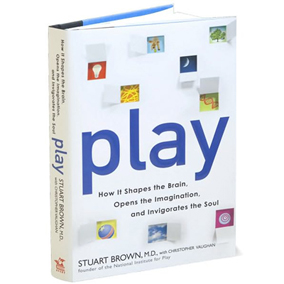
My apologies to Dr. Brown for so ineloquently summarizing his research.
Play is
-Apparently purposeless (What’s the point of this? Nothing? Awesome!)
-Voluntary (You can’t make me have fun if I don’t want to!)
-Inherent Attraction (That looks fun!)
-Freedom from Time (Time flies when you’re having…you get it.)
-Diminished consciousness of self (Do I look stupid? Oh, who cares!)
-Improvisational potential (What are the rules? What? We have to make them up? Great!)
-Continuation desire (I don’t want to stop doing this even if it is dinner time!)
I felt really good all day after the origami play session. And I have watched the video of the Jumping Frog Jumping Contest several times since then and it makes me smile every time, not because the video itself is all that entertaining, but because I am remembering how good it felt to be silly. And while I don’t plan to “facilitate” rather than “teach” workshops from now on, it was good for me feel a diminished consciousness of self for a little while.
The moral of the story here is that I can tell you all day long to go outside and have a water balloon fight with your neighbor (but remember, your neighbor’s participation should be voluntary), or to facilitate a workshop on something you know nothing about, or to get into the library Makerspace to play with some of our fun stuff (Shameless plug: see my previous blog post for a complete list of our toys and tools) but like Dr. Brown says, “…there is no way to really understand play without also remembering the feeling of play. If we leave the emotion of play out of the science, it’s like throwing a dinner party and serving pictures of food.” So, go do it! Throw away those pictures of chicken wings you’re snacking on and get off the computer right now and GO PLAY!
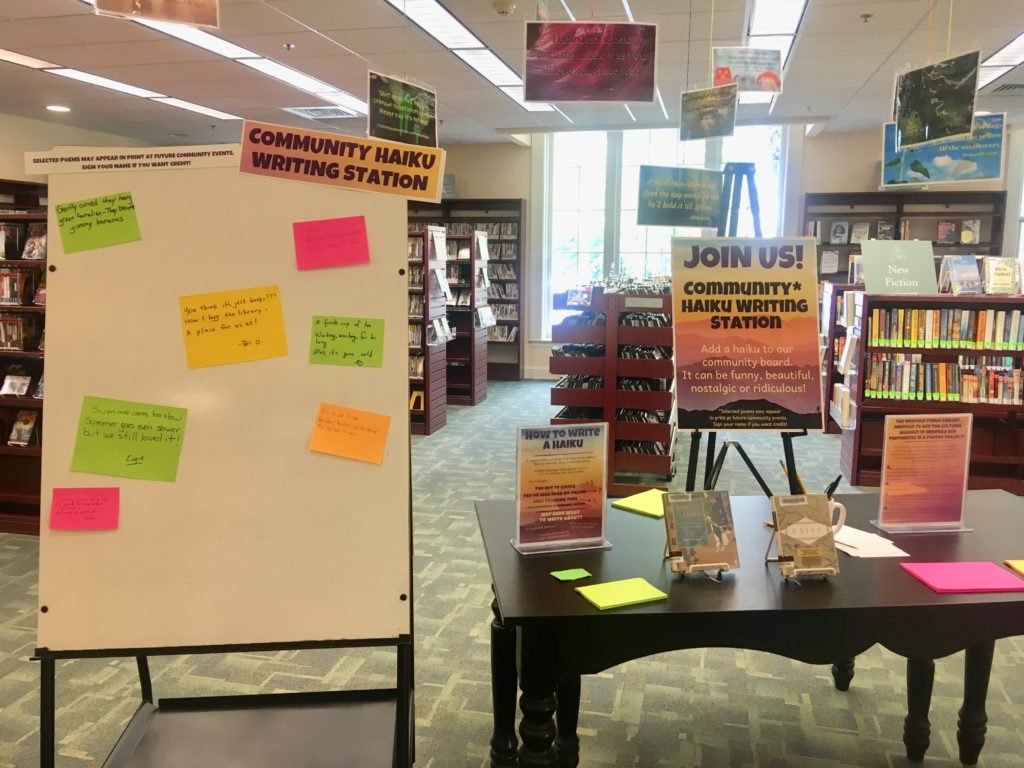


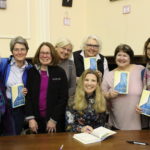


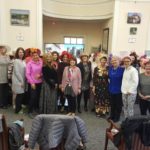




Recent Comments